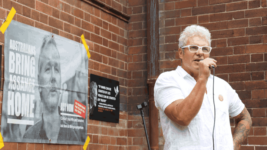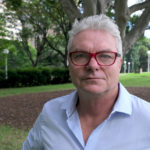Government Continues “the Lavish Use of Public Money” to Prosecute Whistleblowers

During budget estimates on Tuesday, Greens Senator David Shoebridge described the federal government having spent over $1.8 million on the prosecution of former ADF lawyer David McBride, as “a lavish use of public money to gaol a whistleblower”.
However, National Security and Criminal Justice Group deputy secretary Sarah Chidgey said she wasn’t sure if she’d agree with that characterisation.
So, Shoebridge provided two other descriptors that might suffice: “eyewatering” and “criminally large”. But Chidgey, who works within the Attorney General’s Department, was still not satisfied, stating that she’d prefer to describe the amount as “significant”.
But the buck didn’t stop there. The senator ascertained that over $233,000 has thus far been spent on prosecuting ATO whistleblower Richard Boyle, as well as more than $5.5 million having been spent on the now finalised cases against Witness K and lawyer Bernard Collaery.
“So, we now have collective Commonwealth costs for monstering whistleblowers at $7.6 million,” Shoebridge made clear.
Beyond public scrutiny
Chidgey further implied that the reason the cost in prosecuting McBride is so steep is partially due to “protection of information”, meaning the application of national security measures to suppress certain details of the case that saw the whistleblower expose Australian war crimes in Afghanistan.
Indeed, when McBride fronted court last October to argue his public interest defence under laws AG Mark Dreyfus has admitted are flawed, his legal team found it futile to continue, as a last-minute order imposed upon the case made it possible for the prosecution to remove any of his evidence.
Shoebridge described the process to Chidgey as the “repeated efforts from the Commonwealth to keep evidence secret and to prevent it being given to either Mr McBride or Mr Boyle or permitted to be used in their evidence”.
But Chidgey countered this assertion stating that Boyle’s case hadn’t been the subject of secrecy measures, which wasn’t entirely true, as McBride pointed out to Sydney Criminal Lawyers during an interview in December.
“We saw the most extreme extent of this in Richard Boyle’s case, when the ATO applied for suppression orders as if it was a national security case, even though it was a case about the tax department carrying out garnishee orders excessively against small businesspeople,” he said.
Hiding government crimes
Dreyfus dropped the Collaery prosecution last July. The lawyer and Witness K, a former ASIS officer, were both being prosecuted over having divulged information regarding the Howard government illegally bugging the Timor-Leste cabinet offices. And K eventually pleaded guilty to his charges.
Collaery, however, successfully appealed the secrecy measures shrouding his case in October 2021, which resulted in the court determining that six identified matters involved in the case should be available for the public to scrutinise.
Shoebridge further raised issue on Tuesday over the government having gone on to file special leave with the High Court of Australia to ensure that the transcript of the appeal remained secreted from the public, only to then drop the matter following the discontinuation of the Collaery prosecution.
Chidgey explained that the final ruling on releasing the full transcript of the appeal is now up to the ACT Supreme Court. And on the senator’s suggestion that a hearing is set for next week in regard to this matter, the deputy secretary said she was not aware of one and there was no such listing.
“I’m not aware of a hearing next week,” intervened National Security Information Branch assistant secretary Elizabeth Brayshaw. “My understanding is that the Court of Appeal had reserved its decision in relation to the publication of its judgements on 23 September last year.”







